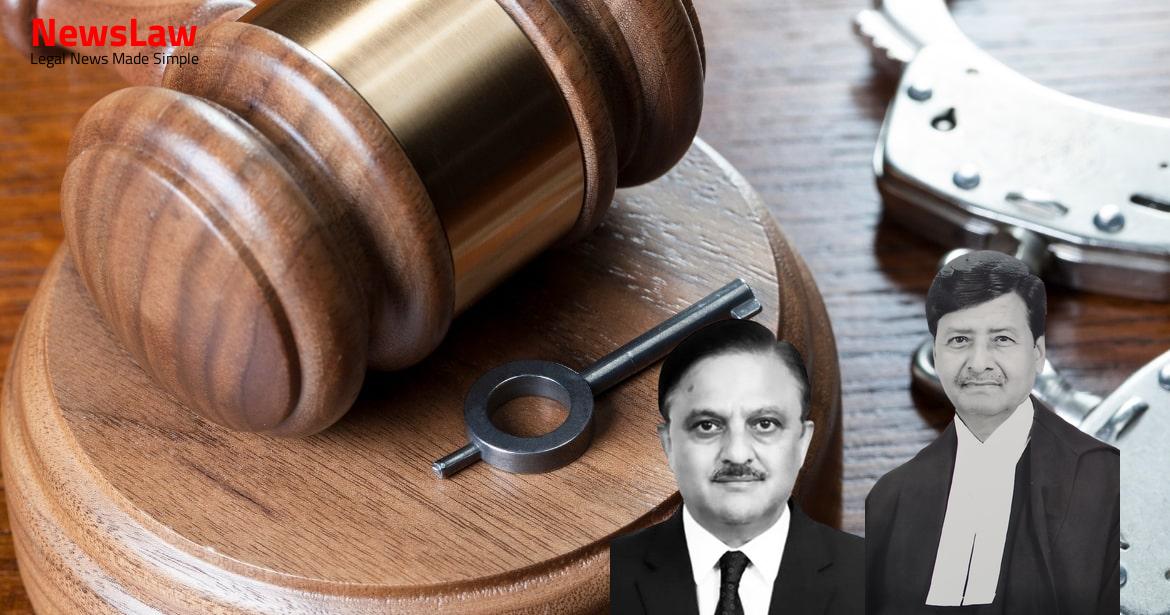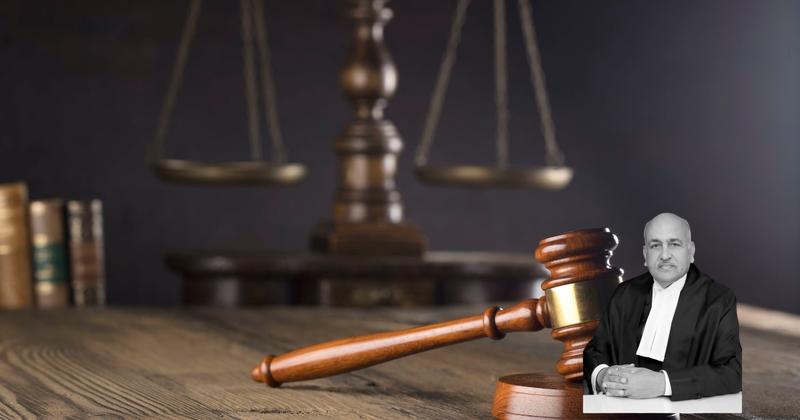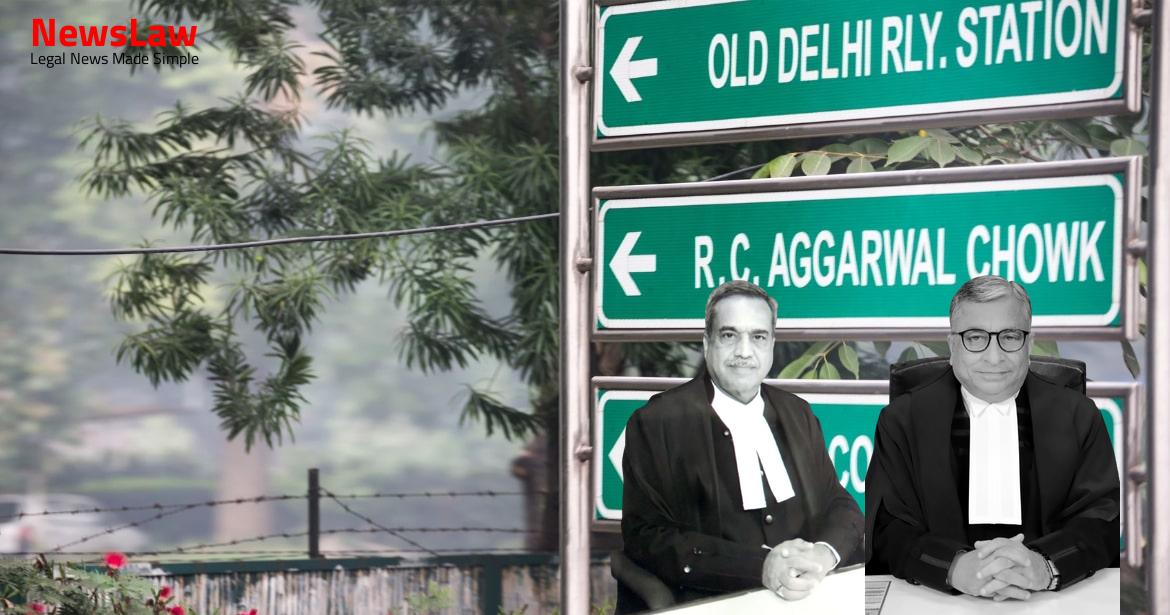Delve into the detailed legal analysis on jurisdiction and limitation in a complex redevelopment dispute. The court’s examination of these key aspects plays a pivotal role in shaping the legal proceedings and outcomes. Stay tuned to uncover the insights and implications of the court’s analysis on the case.
Facts
- Respondent no.27 agreed to provide a corpus of Rs.5,00,000/- per member to the appellant-Society.
- Permissions granted for redevelopment in December 2012 and January 2013.
- Offer for residential premises increased to 460 sq. ft. of carpet area by respondent no.27 in 2021.
- Resolution passed unanimously appointing respondent no.27 as the developer.
- Dispute regarding the redevelopment process and resolutions passed by the Society.
- Offer made by respondent no.27 increased due to enhanced FSI.
- Prayers made in the suit for declaration and fresh tender process.
- Challenges filed in the High Court and Supreme Court.
- Interim relief sought in various legal proceedings.
- Allegations of dilapidated condition of the buildings and objections by certain members.
- Support by majority of Society members for redevelopment.
- Contentions regarding bar of limitation and jurisdiction.
- Civil revision application and agreement details for redevelopment.
- The Trial Judge held that the suit was not barred by Section 91 of the Act of 1960.
- The Bombay High Court stayed the order of the revisional authority on December 11, 2013.
- The High Court ultimately dismissed the revision application.
Also Read: Admission Deadline Adherence in Medical Courses
Arguments
- Mr. Shyam Divan, Senior Counsel, argued that due to the repeal of Section 9A of the CPC in Maharashtra and a recent ruling in Nusli Neville Wadia v. Ivory Properties & Ors., the issue of limitation cannot be determined as a preliminary matter.
- The respondent nos. 1 to 11 will not be entitled to the benefit of Section 14 of the Limitation Act, 1963.
- The finding recorded by the Trial Court on the issue of limitation needs to be set aside.
- The original plaintiffs will be entitled to the benefit of Section 14 of the Limitation Act.
- The bar of Section 91 of the Limitation Act of 1960 will not be attracted.
Also Read: From Nominee to Disqualified: Supreme Court Scrutinizes Age Evidence, Declares Election Invalid
Analysis
- The court cannot decide a question solely under the guise of Section 9-A if it is a mixed question of law and fact, evidence must be recorded.
- The distinction between jurisdiction’s existence and exercise is crucial, with ‘entertain’ referring to initiating the relief granting process.
- An issue of limitation requires evidence to be recorded for decision-making purposes.
- The decision to redevelop was initiated in 2011, formalized in 2012, but faced opposition leading to significant delays despite majority support.
- The suit by respondents 1 to 11, filed in 2016, challenges resolutions dating back to 2011 and 2012, contemplating redevelopment.
- The court highlighted the perilous state of the buildings requiring urgent structural audit and potential collapse risks.
- Favorable response from the majority members supports redevelopment efforts, while delays harm residents staying in dilapidated buildings.
- The deletion of Section 9A in Maharashtra Act created legal implications for ongoing preliminary issues framed under it.
- The role of the court in deciding jurisdiction issues without recording evidence to ensure timely relief without jurisdictional errors.
- Section 9A in Maharashtra uses the expression ‘jurisdiction to entertain’ in a narrow sense, not comprehensive.
- Jurisdiction in Section 9A refers to the power to entertain a case or to try it.
- Court’s jurisdiction should enable it to receive a case for consideration or trial.
- Decision in Kamalakar Eknath Salunkhe case was deemed correct.
- Defect of jurisdiction in the court passing the decree is attached to the decree itself if the dismissal was due to jurisdictional defect.
- Raghunath Das v. Gokal Chand case saw the execution of decree’s award being dismissed as the decree was considered a nullity.
Decision
- The appellant-Society and respondent no.27 will enter agreements with individual members for premises in new buildings free of cost.
- The respondent no.27 must complete the project within five years of receiving possession of the buildings.
- Members will receive transit rent, shifting charges, and brokerage as mentioned in the undertaking within two months.
- Transit rent for five years will be paid in advance to members when entering into agreements.
- The successor of respondent no.27 must also abide by the undertakings.
- Transit rent of Rs. 25,000 per month with a 10% annual increase to be provided.
- One-time shifting charges of Rs. 10,000 to be given for relocation.
- Undertakings address the concerns of respondent nos.1 to 11.
- Approximately Rs. 15 crores towards GST charges to be paid on construction cost.
- The redevelopment project must be completed within specific timeframes to bring an end to disputes.
- Residential premises of 475 sq. ft. carpet area to be provided to eligible members.
- Existing applications stand disposed of.
- Court exercises Article 142 powers for complete justice.
- Disposal of the suit and quashing of criminal complaints related to the project.
- Court enforcement of directions and undertakings by both parties.
- Outer limit of five years set for project completion once possession is obtained by respondent no.27.
- POSsession must be handed over within the five-year limit to eligible members.
- Resolution of pending litigation and complaints related to the project.
- New developer must adhere to the directions of the court.
- Specific amounts proposed for brokerage and transit rent.
- Dismissal of Special Leave Petition against the order of stay.
- Timeframe for project commencement and exclusion of certain events beyond developer’s control.
Case Title: KAMGAR SWA SADAN CO OPERATIVE HOUSING SOCIETY LIMITED Vs. VIJAYKUMAR VITTHALRAO SARVADE (2022 INSC 161)
Case Number: C.A. No.-001222-001222 / 2022



